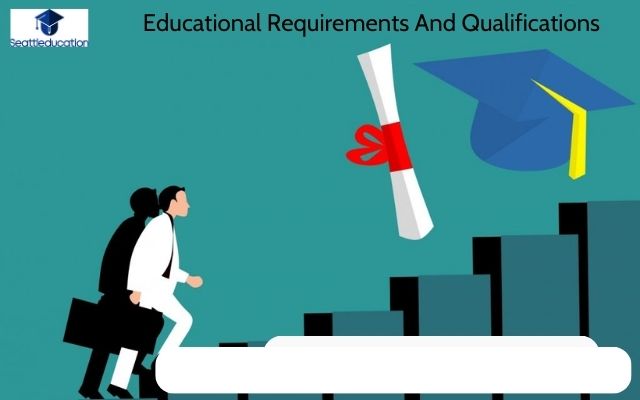Special Education Teaching Careers: Opportunities & Challenges
Special Education Teaching Careers: Becoming a special education teacher is an incredibly rewarding career path, offering the opportunity to make a difference in students’ lives. It’s also a challenging job that requires special training and dedication, but those who pursue it can expect to find great personal satisfaction. In this article, we’ll look at what you need to know about special education teaching careers and how to get started on your journey.
Let’s get started!
Introduction
Special education teaching is an incredibly important role in the educational system. It provides students with special needs and learning disabilities access to a quality education, allowing them to reach their full potential.
Special education teachers are dedicated professionals who understand the unique needs of these students and can provide individualized instruction that helps them succeed. It’s also essential for special education teachers to have compassion and understanding when working with children – they need to be able to create a safe, supportive environment where all students feel comfortable expressing themselves.
With the right tools and strategies, special ed teachers can help guide their pupils through various challenges while promoting inclusion among their peers. Through this blog post we’ll explore what it takes to become a successful special education teacher, as well as learn more about this growing field in terms of job opportunities, salary expectations and career paths.
Understanding Special Education
To start off, it’s important to know what qualifications are necessary to become a special education teacher. You’ll need a Bachelor’s degree in Special Education, as well as a teaching license in your state.

There are many benefits to being a special education teacher, such as the satisfaction of helping students with special needs reach their goals. However, it can also be challenging as teachers must be prepared to handle any unexpected obstacles that arise.
Qualifications For Special Education Teachers
Becoming a special education teacher requires more than just passion and dedication. It also involves having the right qualifications to teach students with disabilities successfully.
A Bachelor’s degree in either general or special education is typically needed, as well as certification from the state Department of Education. Although each state may differ in its requirements for certifications, most require courses that focus on teaching strategies for students with disabilities, such as autism spectrum disorders, physical/developmental disabilities, emotional and behavioral disorders, and learning disabilities.
Additionally, knowledge of legislation like IDEA and Section 504 are essential since they shape how schools provide services to students with special needs. With these qualifications in place, special education teachers can ensure that their classrooms are welcoming environments where every student has an opportunity to learn and grow.
Benefits Of Special Education Teaching
Teaching special education offers many unique benefits that reward both teachers and students, making it a highly rewarding career choice. From cultivating meaningful relationships to creating an inclusive learning environment, every day brings something new for the teacher as well as their pupils.
Working with these students who have diverse abilities also provides incredible opportunities for personal growth for the educator, allowing them to learn more about different types of disabilities and develop strategies that work best for each individual student.
And because of all the hard work put in by the dedicated educators, children with special needs are able to make progress and reach milestones they may have never thought possible. All in all, teaching special education is an incredibly rewarding experience!
Challenges Of Special Education Teaching
Despite the many benefits, teaching special education poses its own unique set of challenges. Special education teachers must be prepared to handle a wide range of emotional and behavioral issues, as well as physical disabilities that require individualized accommodations.
Additionally, educators must learn to navigate complex legal requirements such as those imposed by IDEA or Section 504 in order to ensure their students are getting the necessary services they deserve.
It’s not always easy for these professionals who work hard to create an inclusive learning environment while still meeting all the educational needs of each student. But despite the difficulties, special education teachers remain committed to helping their students reach their full potential.
Educational Requirements And Qualifications
Let’s start by talking about the degrees and certifications required to become a special education teacher. Then, we can move on to discussing specializations in the field.
Degrees And Certifications
When considering the educational requirements and qualifications for special education teaching careers, degrees and certifications are essential. At a minimum, teachers need to have earned a bachelor’s degree in special education or another related field.
Those who wish to take their career further may pursue a master’s degree as well; both online and on-campus options exist for this type of higher learning.
Additionally, it’s important to make sure you meet your state’s certification requirements so that you can be licensed properly before beginning work in the classroom. With all these credentials secured, educators will be prepared to embark upon their new journey.

Specializations
Once the basic qualifications have been taken care of, it’s time to start thinking about specializations. Special education teachers can choose to specialize in a variety of areas, such as early childhood special education, visual or hearing impairments and assistive technology.
By focusing on one particular subject area, educators will be able to provide their students with the best possible resources for success in the classroom. With this knowledge and experience in hand, they’ll be ready to take advantage of all the opportunities that come their way.
Job Opportunities In Special Education Teaching
The world of special education teaching offers a wide range of job opportunities and career paths for those interested in helping children with unique learning needs.
Whether you are looking to work in public or private schools, early intervention programs, home-based settings, alternative settings such as hospitals or residential facilities, or even online – there is likely an opportunity available that fits your goals and interests!
Here are some key points to consider when exploring job opportunities in special education:
- Demand for Special Education Teachers: The demand for special education teachers has been steadily increasing over the past few years due to changes in federal laws, which require more students with disabilities be educated.
- Geographic Considerations: Depending on where you live, the availability of jobs can vary greatly. It’s important to research what types of positions are most commonly offered in your area before committing to a program.
- Advancement Opportunities: With experience and training, it is possible to advance into leadership roles within the field such as department heads or administrators.
- Certification Requirements: Different states may have different requirements for certification in order to teach special ed classes so make sure you check out any applicable regulations beforehand.
- Educational Options: You don’t necessarily need a degree from a college; many employers offer apprenticeships or other educational programs specifically designed for aspiring special ed teachers.
No matter what path you choose, pursuing a career in special education teaching can be incredibly rewarding both professionally and personally. From working closely with students who often face unique challenges, to aiding them through their growth process – the rewards that come along with this profession are unmatched anywhere else!
Roles And Responsibilities Of Special Education Teachers
I think it’s important to talk about the roles and responsibilities of special education teachers, like collaborating with educators and specialists, developing IEPs, and implementing teaching strategies.
They need to work closely with other professionals to ensure that the student’s needs are being met, as well as create individualized education plans and use the most effective teaching methods. It’s a big job, but it’s an important one to help students with special needs reach their full potential.
Collaborating With Educators And Specialists
When it comes to special education teaching, collaboration with other educators and specialists is key! This could include co-teaching models, working with paraprofessionals or support staff, or consulting with therapists and medical professionals.
All of these individuals help to ensure that students are receiving the best possible care. By being able to communicate effectively across disciplines and roles, teachers can deliver more effective instruction for their students. Ultimately, this kind of cooperation helps create a strong learning environment for all involved in special education.
Developing Ieps
Moving on to another important role of special education teachers, developing Individualized Education Plans (IEPs) is essential. They must assess student needs and set goals and objectives tailored to each individual’s strengths and weaknesses.
This helps ensure that the instruction provided is appropriate for each student. Monitoring progress through formative and summative assessments, as well as keeping parents up-to-date with progress reports, allows educators to make necessary changes in order to better meet students’ needs.
With so many variables at play, it can be challenging to adjust instruction accordingly – but ultimately this kind of attention leads to improved outcomes for all involved!
Implementing Teaching Strategies
Once the student’s needs have been assessed and goals set, it is time to move on to implementing appropriate teaching strategies and accommodations.
This includes differentiating instruction based on each student’s individual learning levels, using assistive technology, like voice recognition software or special keyboards for those with mobility impairments, and employing behavior management techniques as needed.
It also involves making sure that all students are able to access materials in a meaningful way so they can reach their fullest potential. With careful planning and execution of these tactics, educators can ensure that every student has an equal opportunity to learn!
Challenges And Rewards Of Special Education Teaching Careers
Compassion fatigue can be a big challenge for special education teachers – they often dedicate so much of themselves to their students that it can take a toll on their mental and physical health.

Working with diverse student populations is another challenge, as special education teachers must be creative and innovative when teaching students with a variety of learning difficulties.
But there are also many rewards to special education teaching careers – teachers can have a positive impact on the lives of their students and see the progress that they make.
Compassion Fatigue
Compassion fatigue is one of the emotional and physical demands that special education teachers face, as they dedicate their time to support students with diverse needs.
Working constantly in a challenging environment can take its toll on these professionals, but there are many strategies available to help them cope.
Taking breaks from work, seeking guidance or counseling when needed, and focusing on self-care activities are all important steps to manage compassion fatigue and stay resilient while working in this rewarding field. With dedication and perseverance, special education teachers can make a meaningful difference in people’s lives every day.
Diverse Student Populations
As special education teachers work with diverse student populations, they have to be sensitive to cultural and linguistic differences while taking into account varying levels of ability and need.
It’s not always easy to manage the family dynamics that come along with this job – but when it works out, it can create a rewarding connection between teacher and student as well as their families.
With careful attention and respect for each individual’s culture, background, and needs, special education teachers can make an impact like no other profession.
Positive Impacts
The positive impacts of special education teaching careers can be incredibly rewarding. Not only do teachers have the chance to witness their students’ successes and milestones, they also get to build strong relationships with them and help empower them to become independent learners.
Special educators are often praised by parents for positively influencing their children’s lives. It is a truly fulfilling experience that brings joy to both parties, making it all worth it in the end.
Tips For Success In A Special Education Teaching Career
Embracing a growth mindset is key to success in a special education teaching career; it’s important to remember that even when faced with challenges, there are always new things to learn.
Building relationships is also essential; it’s important to build trust and rapport with students, colleagues, and parents. Lastly, staying informed is critical; it’s important to stay up to date on the latest special education teaching strategies and resources.

Embracing A Growth Mindset
As a special education teacher, embracing a growth mindset is essential to achieving success. It’s important to be willing to adapt and learn from any mistakes or setbacks you experience.
Seeking feedback from co-workers can help you grow as a professional and develop new skills. Plus, it’s beneficial for you to stay open minded about different approaches and perspectives so that you can better serve your students in the classroom. Ultimately, having an attitude of self-improvement will lead to greater rewards in your teaching career.
Building Relationships
Moving on, it’s also important to develop strong relationships with students, families, and colleagues. Building rapport is key; take the time to get to know each of your students so you can understand their individual needs better.
It’s also helpful to communicate with parents regularly in order to keep everyone informed about progress and upcoming events. Additionally, don’t forget to reach out to fellow teachers for support – collaboration is essential when it comes to problem-solving. By nurturing these connections over time, you’ll be able to foster an environment that encourages growth and mutual respect.
Staying Informed
Now that you have strong connections with both your students and colleagues, it’s essential to stay informed about new research and best practices. To do this, subscribing to professional journals and newsletters is a great way to start; these publications provide invaluable insight into current trends in the special education field.
Attending conferences or workshops can also help broaden your knowledge base, as well as give you an opportunity to network with other professionals.
Additionally, taking time each day to read relevant articles or listen to podcasts can be beneficial in staying up-to-date on the latest advancements in teaching strategies.
By making sure you are always learning something new, you will ensure that your classroom remains dynamic and engaging for everyone involved.
Stories From The Field: Inspirational Experiences Of Special Education Teachers
Connecting with Students: I love hearing about the unique ways special ed teachers develop relationships with their students!
Overcoming Challenges: It’s inspiring to learn how special ed teachers manage difficult and unexpected challenges in their classrooms.
Transformative Impact: It’s incredible to see how much of an impact special ed teachers can have on their students’ lives!
Connecting With Students
Creating meaningful connections with students is one of the most rewarding aspects of teaching special education. I’ve had countless moments in my career when I’ve seen a student make an incredible breakthrough due to the trust and rapport we have built.
It always warms my heart to see them take ownership of their learning, understand their individual needs, and strive for growth. These relationships are so important to me as a teacher—not only do they help foster success and understanding within the classroom, but also it helps build a supportive community that will last far beyond graduation day.
Being able to witness these types of transformations has been incredibly inspiring and motivating for me throughout my career in special education.
Overcoming Challenges
Although there are many fulfilling aspects of working in special education, it is also a field that comes with its fair share of challenges. I have seen students face an array of obstacles and setbacks over the years, often due to their individual needs or limited resources available.
Despite these difficulties, I’ve consistently been amazed by how resilient they can be when they receive the right support and guidance. It takes patience and hard work but watching them overcome those obstacles has been incredibly rewarding for me as a teacher. Seeing my students reach progress milestones and realizing their full potential never fails to fill me with pride and optimism about their futures.
Transformative Impact
Moreover, working in special education has had a transformative impact on both myself and my students. I have seen firsthand how this work can be life-changing – not only for the children but also for those of us who teach them.
Through teaching these unique learners, I’ve come to gain new perspectives on life and become more empathetic towards others. Seeing their progress is incredibly fulfilling; knowing that I am making a difference in someone else’s life keeps me motivated every day.
Likewise, my students are able to experience personal growth as they develop self-confidence and resilience while learning valuable skills. It truly touches my heart when I see my students break through barriers and reach milestones, inspiring future generations of educators along the way.
Conclusion
In conclusion, special education teaching is a rewarding and fulfilling career. It requires dedication and commitment to provide the best possible education for students with special needs. With the right training, you can become an effective teacher in this field.
The average salary of a special education teacher varies from state to state, but job opportunities are plentiful. Working with special needs students requires patience, creativity, understanding, and compassion—all skills that can be developed through experience and practice.





